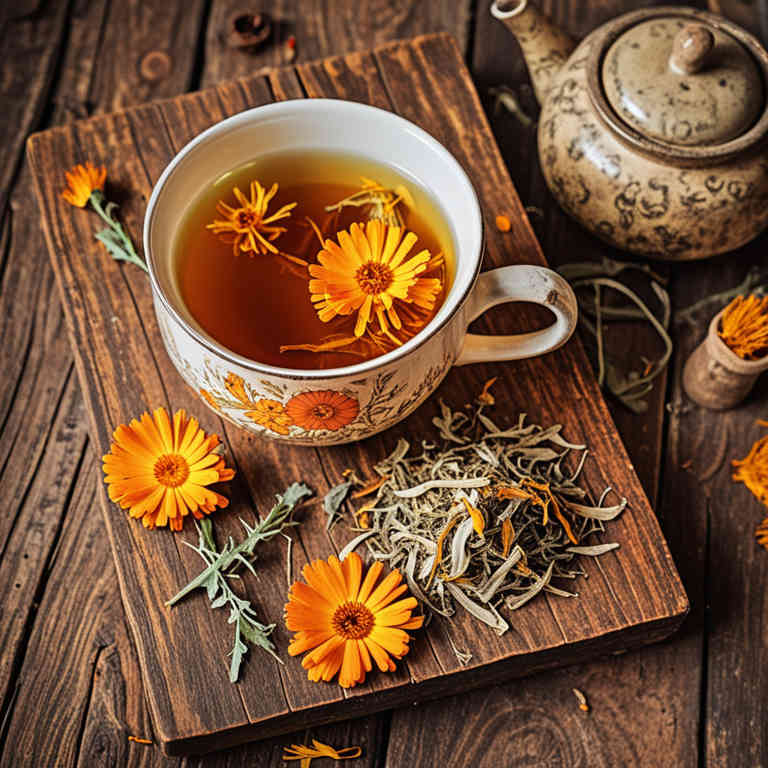Calendula officinalis tea for medicinal use

Calendula officinalis tea is a herbal preparation made from the dried flowers of the Calendula plant, known for its vibrant orange color and medicinal properties.
It is commonly used in herbalism to support skin health, reduce inflammation, and promote healing due to its anti-inflammatory and antimicrobial qualities. This tea can be consumed internally to aid digestion and soothe stomach upset, or applied externally as a compress to treat minor wounds and skin irritations. It is often valued for its gentle yet effective nature in both traditional and modern herbal practices.
Its versatility makes it a popular choice for those seeking natural remedies for a variety of ailments.
Uses
Calendula officinalis tea has been used to treat various skin conditions and promote healing for centuries.
Historically, it was valued in ancient Egypt, Greece, and Rome for its anti-inflammatory and antimicrobial properties. Traditionally, it was used to soothe wounds, reduce inflammation, and treat digestive issues. In modern times, it is commonly consumed as a herbal tea to support gut health and alleviate symptoms of indigestion.
Today, it is also used topically in creams and ointments for its soothing effects on the skin.
Benefits
Calendula officinalis tea has health benefits such as promoting skin health, reducing inflammation, and supporting digestive wellness.
It is often used to soothe minor skin irritations and may help with conditions like eczema or psoriasis due to its anti-inflammatory properties. The tea can also aid in digestion by relieving symptoms of indigestion and bloating. Its antioxidant content supports the immune system and may contribute to overall well-being.
Additionally, it is known for its calming effects, making it a popular choice for relaxation and stress relief.
Constituents
Calendula officinalis tea active constituents include flavonoids, triterpenes, and carotenoids, which contribute to its therapeutic properties.
These compounds possess anti-inflammatory, antimicrobial, and antioxidant effects, making the tea beneficial for digestive health and skin care. It is commonly used to soothe gastrointestinal discomfort and promote wound healing. The tea may also support immune function due to its rich phytochemical content.
Overall, Calendula officinalis tea is valued for its mild yet effective contributions to holistic well-being.
Preparation
To make Calendula officinalis tea, start by gathering dried calendula flowers, which can be found in health food stores or online.
Next, bring a pot of water to a boil and add the dried flowers, using about one teaspoon per cup of water. Let the mixture steep for 10 to 15 minutes to allow the flavors and compounds to infuse into the water. Strain the tea into a cup and enjoy it warm, optionally adding a touch of honey or lemon for taste.
This herbal tea is known for its calming properties and can be consumed daily for its soothing effects.
Side Effects
Calendula officinalis tea may lead to gastrointestinal discomfort, including nausea, vomiting, or diarrhea, especially when consumed in large quantities.
It can also cause allergic reactions in individuals sensitive to plants in the Asteraceae family, such as ragweed. Prolonged use may interfere with blood clotting, increasing the risk of bleeding, particularly in those taking anticoagulant medications. Some studies suggest it may have mild sedative effects, which could be concerning for people with sleep disorders or those operating heavy machinery.
It is advisable to consult a healthcare professional before use, especially for pregnant women, nursing mothers, or individuals with chronic health conditions.